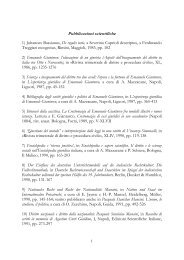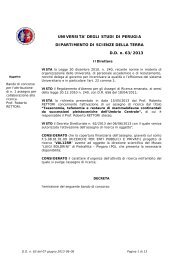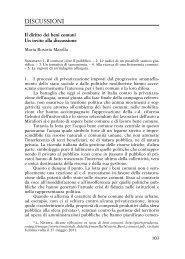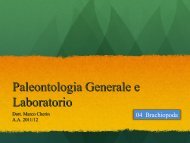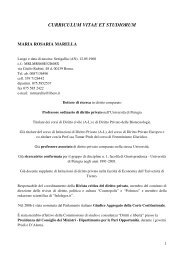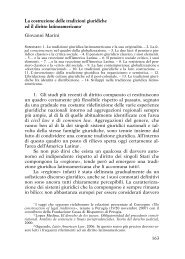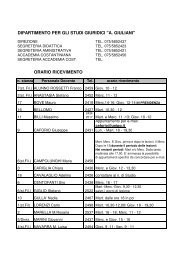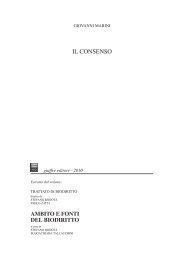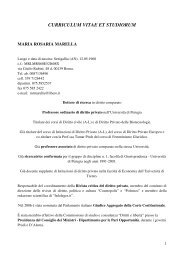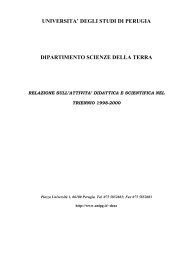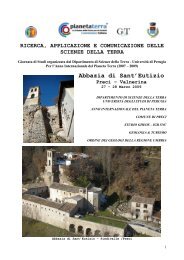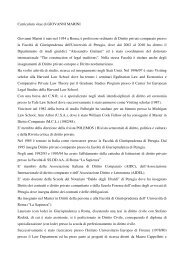Fifth International Groundwater Conference (IGWC-2012)
Fifth International Groundwater Conference (IGWC-2012)
Fifth International Groundwater Conference (IGWC-2012)
- No tags were found...
You also want an ePaper? Increase the reach of your titles
YUMPU automatically turns print PDFs into web optimized ePapers that Google loves.
About the <strong>Conference</strong><strong>Groundwater</strong> resources in hard rock regions with limited renewable potential have to be managed judiciously to ensure adequatesupplies of dependable quantity and quality. It is a natural resource with economic, strategic and environmental value, which is understress both due to changing climatic and anthropogenic factors. Therefore the management strategies need to be aimed at sustenance ofthis limited resource. In India, and also elsewhere in the world major parts of the semi-arid regions are characterized by hard rocks and itis of vital importance to understand the nature of the aquifer systems and its current stress conditions. Though the achievements throughscientific development in exploration and exploitation are commendable, it has adversely affected the hard rock aquifer system, both interms of quantity and quality; which is of major concern today. In order to reverse the situation, better management strategy ofgroundwater resources needs to be devised for prevention of further degradation of quality and meeting out the future demand ofquantity. This necessitates:Understanding the flow mechanism, evaluating the potential and evolving optimal utilization schemes, andAssessing and monitoring quality in the changing scenario of anthropogenically induced agricultural, urban, industrial andclimatic change.The groundwater flow mechanism through fractures in hard rocks is yet to be fully understood in terms of fracture geometry andits relation to groundwater flow. The characterization of flow geometry in basaltic aquifer is yet to be fully explored.<strong>Groundwater</strong> pollution due to anthropogenic factors is very slow process with long-term impacts on carbon cycle and globalclimatic change on one hand and quality on the other. It is generally recognized that the prevention of groundwater pollution is cheaperthan its remedial measures in the long run. Furthermore, because of the nature of groundwater flow and the complexity and managementuncertainty of many contaminant processes, a precautionary approach should generally be adopted for the groundwater resources. Suchan approach is always aimed to avert danger or at least minimize the risk of groundwater pollution and promote protection of its quality.Taking in view of the above, the <strong>Fifth</strong> <strong>International</strong> Ground Water <strong>Conference</strong> (<strong>IGWC</strong>-<strong>2012</strong>) is planned during December 18-21, <strong>2012</strong> atAurangabad in Maharashtra. Dr. M. Thangarajan had successfully organized the First <strong>International</strong> <strong>Groundwater</strong> <strong>Conference</strong> (<strong>IGWC</strong>-2002) at Dindigul, Tamil Nadu and served as conference co-coordinator of <strong>IGWC</strong>-2006 at JNU, New Delhi & <strong>IGWC</strong>-2007 at TNAU,Coimbatore, and <strong>IGWC</strong>-2011 at Madurai. He is now the Advisor cum <strong>Conference</strong> Coordinator of <strong>IGWC</strong>-<strong>2012</strong>. The main emphasis in organizing such an <strong>International</strong> <strong>Conference</strong> is on the outcome of deliberations of the conference whichcould reach the users, who are facing the problems due to groundwater shortage and quality deterioration.Ground Water - Nurture for Prosperity - Save for Posterity.



